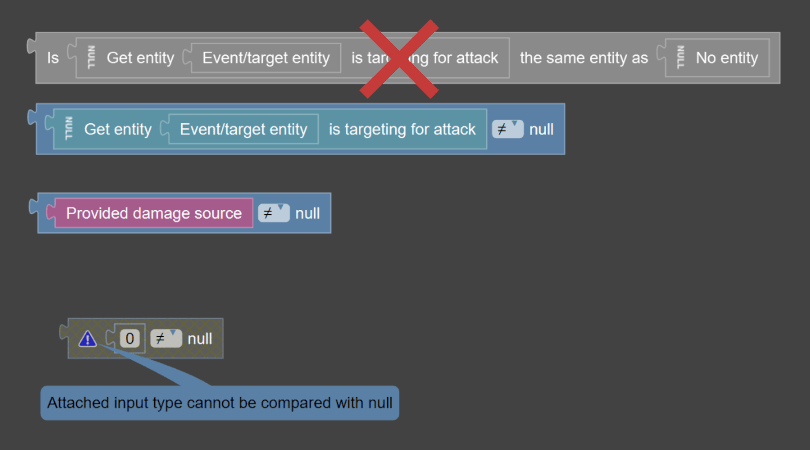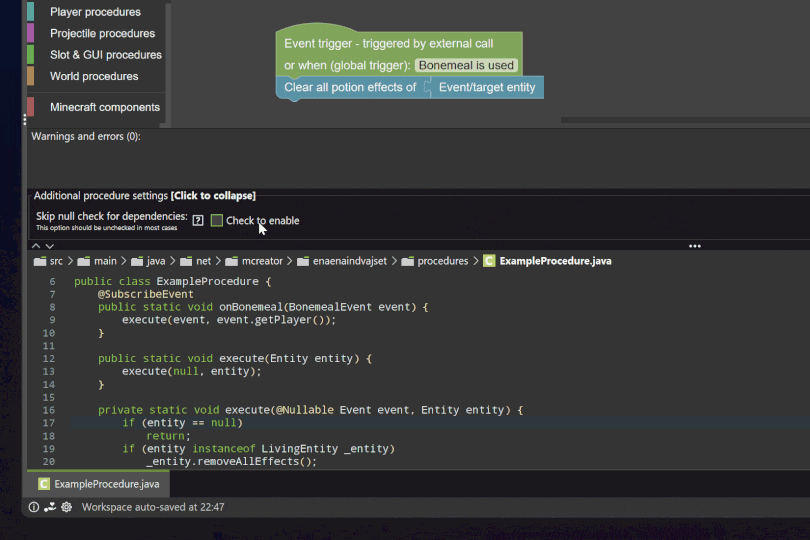If your procedure crashes the game when the procedure is called in some or all cases, you are probably using one of these procedure blocks (there are other blocks too, the common thing with these blocks is they have a special NULL marking):

These blocks can return an empty value (null), as the entity will not always have an owner, be attacking, or riding another entity.
The cause
If you use such block in a procedure with any action, for example like this (just example, any use without a check shown in the next section is problematic):

In case the "Event/target entity" will not be riding any entity, you will be setting the health of an entity that does not exist to 0 in this case, and this will inevitably lead to a crash.
The solution
Whenever you use such a block, you need to ensure the entity you are looking for exists (is not NULL). To do this, you will need to check if your entity is one of the types you expect or check if the entity is not null directly. The corrected procedure from the example above in case we want the procedure to run for any living entity type would be:

If you don't want to check for a specific type, alternative check can be

Now, we check if the entity "Event/target entity" is riding is of (sub)type EntityLiving (all animals, mobs, ...). The entity that is NULL is not a living entity, so in such case, this procedure will not run, and we will not be setting the health of a non-existent entity to 0 and the game will run happily.
Improved null check procedures
Starting with MCreator 2025.2, an improved null check procedure blocks were added. We recommend using those when possible. See some examples below - the grayed out procedure is the old approach explained above.

Disabling automatic dependency null check
To prevent crashes that beginners would not understand, by default, MCreator requires all dependencies that can be null not to be null. One major example is entity dependencies. If the procedure uses, e.g., both source and target entity dependencies, both need to be non-null for the procedure to run.
However, this may not always be the case, and in those cases, the procedure would currently not run. One can disable those null checks, but this requires them to then manually check if the entity is not null. Therefore, this is an advanced feature that only experienced procedure users should use.
